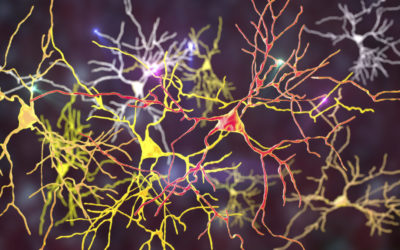Quick Hits
Daily brief research updates from the cognitive sciences

Yes, you yoga practitioners knew you were special and here is the science to prove it!
In this older study I came across (2018) participants were recruited to see how they dealt with stress. 19 were yoga practitioners (taking part in 1-3 30- to 60-minute sessions per week) and 12 were from the general public who didn’t participate in yoga but were physically active. They were then given various questions and then they had their brains scanned. During scanning they were given various emotion-eliciting stimuli and tasks. These were video clips and were selected to elicit certain types of emotions e.g. anger, or conversely, happiness.
What was interesting is that the researchers found that yoga practitioners had a unique brain activation pattern activating two brain regions known as the superior parietal lobule and the supramarginal gyrus during emotional regulation. This suggest that something about yoga changes brain activation patterns. As the researchers note:
“… yoga experience may allow individuals to: (1) regulate the emotion generation process through greater flexibility, acceptance and non-attachment to the self when observing or experiencing emotions; and (2) be more empathic when presented with an emotional situation, by attending to the emotions of other individuals”
Now that is a sales message for yoga!

Andy Habermacher
Andy is author of leading brains Review, Neuroleadership, and multiple other books. He has been intensively involved in writing and research into neuroleadership and is considered one of Europe’s leading experts. He is also a well-known public speaker speaking on the brain and human behaviour.
Andy is also a masters athlete (middle distance running) and competes regularly at international competitions (and holds a few national records in his age category).
Reference
Wadden, K. P., Snow, N. J., Sande, P., Slawson, S., Waller, T., and Boyd, L. A. (2018).
Yoga practitioners uniquely activate the superior parietal lobule and supramarginal gyrus during emotion regulation.
Front. Integr. Neurosci. 12.
doi:10.3389/fnint.2018.00060.
More Quick Hits
Developing Self Control in Children
Different areas of the brain are associated with empathy – this new research shows how brain regions synchronise to induce empathic responses.
Surprising Discovery on the Social Brain
Different areas of the brain are associated with empathy – this new research shows how brain regions synchronise to induce empathic responses.
How Emotional Satisfaction (not “Happiness”) Improves Students’ Grades
Different areas of the brain are associated with empathy – this new research shows how brain regions synchronise to induce empathic responses.
The Little Known Brain Cells that Help You Stay Awake and Keep Your Brain Active
Different areas of the brain are associated with empathy – this new research shows how brain regions synchronise to induce empathic responses.
Unfair! Brain Circuit for Fair Rewards Identified
Different areas of the brain are associated with empathy – this new research shows how brain regions synchronise to induce empathic responses.
Brain Cells of Males and Females Respond Differently to Stress
Different areas of the brain are associated with empathy – this new research shows how brain regions synchronise to induce empathic responses.






